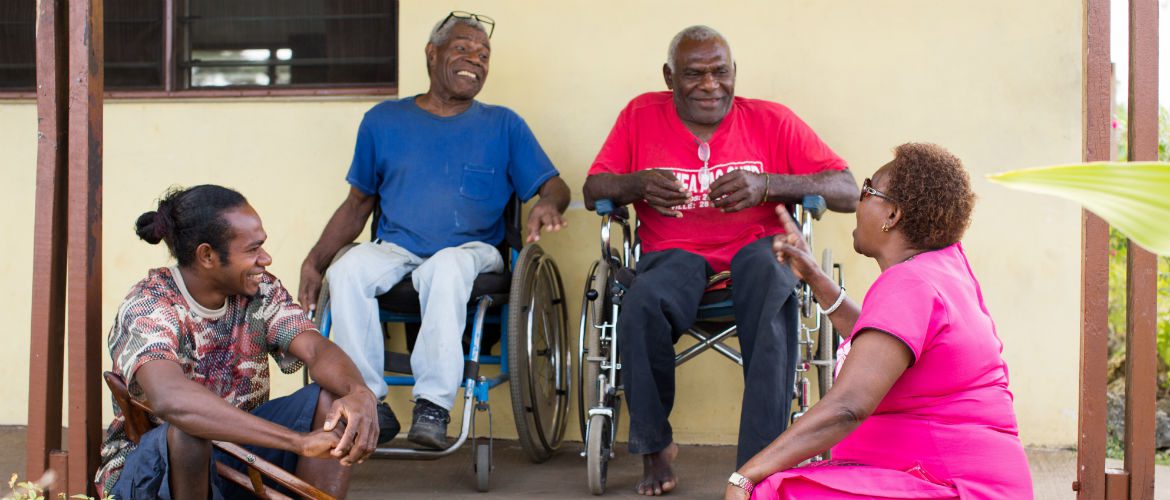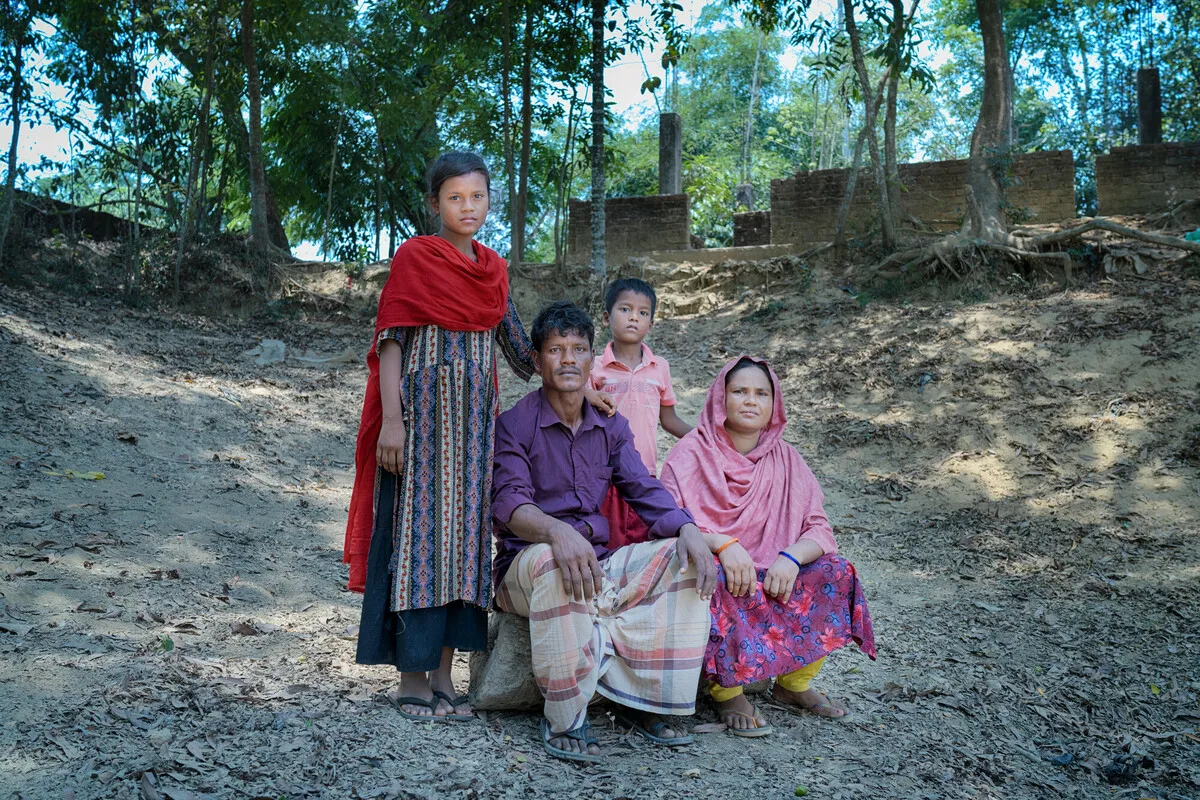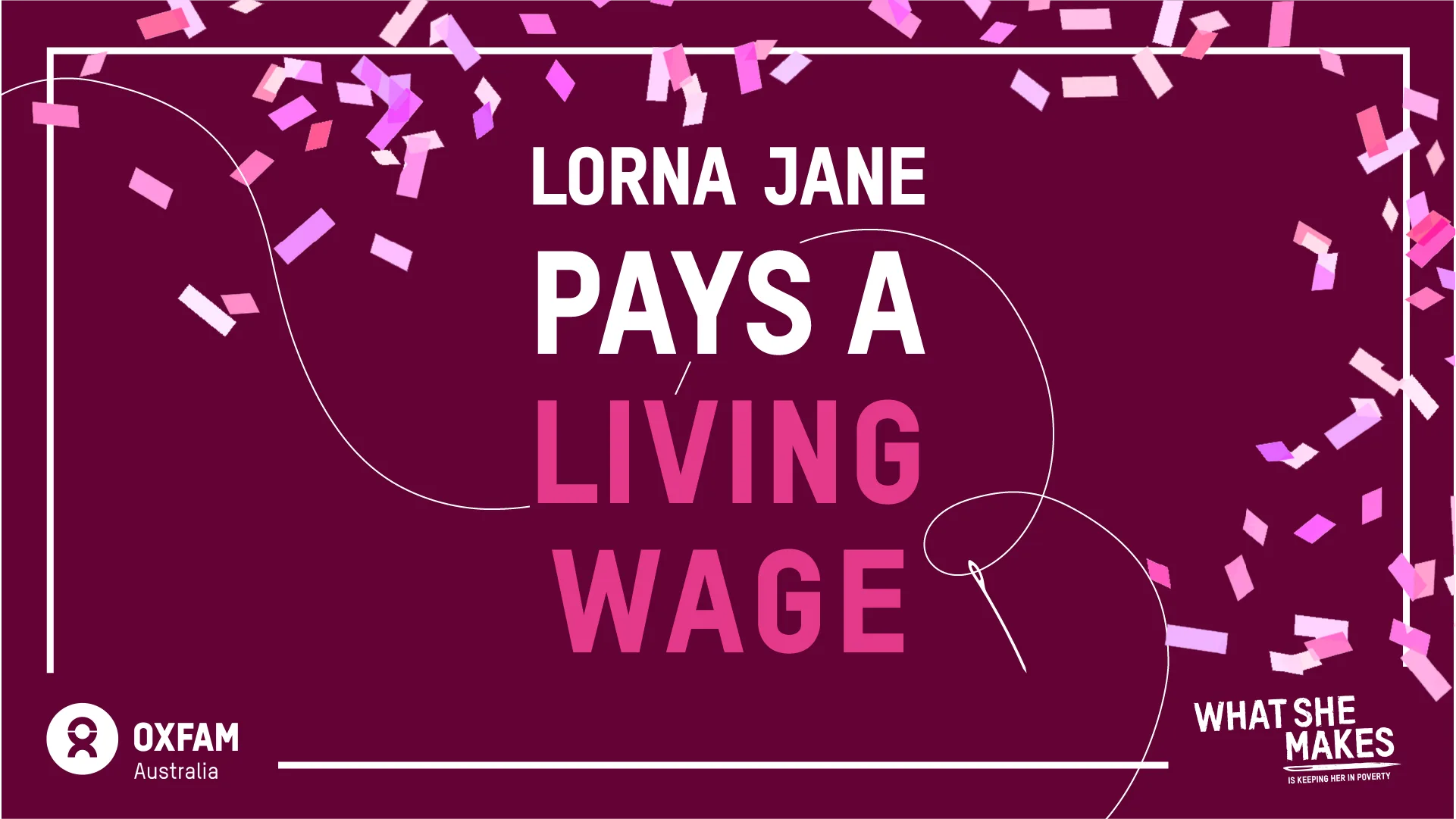Today on International Day for People with Disabilities, we look closely at the theme “Inclusion matters: access and empowerment for people of all abilities” – an important theme that resonates throughout Oxfam’s program work – including emergency response.
Every year, millions of people around the world will be forced to abandon their homes as a result of war, crime and political unrest. Another 250 million people will be forced to evacuate because of natural disasters.
And if you’re part of the population that has a disability, how will this affect you? What unique challenges might you face in rebuilding your home, regaining a livelihood or accessing vital services?
People with disability already face many barriers to enjoying equal access and inclusion in society. So in the face and aftermath of disaster and conflict, people with disability are particularly vulnerable. Oxfam strives to ensure that their unique rights, needs and perspectives are taken into account.
Since 2013, Oxfam in Vanuatu has been supporting the formation and development of the Vanuatu Civil Society Disability Network (VCSDN).
In Vanuatu, people with disabilities represent 12% of the population. Government data shows that people with disabilities are:
- less likely to attend school
- more likely to be living in poverty
- less likely to be employed outside the home . People with disability lack access to public buildings and face stigma that often excludes them from community activities.
- Women and girls with disability are recognised to experience double discrimination and violence.
Recognising that Cyclone Pam was likely to increase the disadvantage experienced by people with disabilities, the network was activated two weeks after the cyclone to advocate for disability rights and needs in the national disaster response.
When Oxfam co-organised the national Women in Emergency Response and Recovery Forum with CARE International and UN Women, members of the VCSDN were vocal in sharing their experiences. They provided recommendations for improving future disaster preparedness, response and recovery to meet the needs of women and people with disability.
One VCSDN advocate supported by Oxfam was Nelly Caleb, Director of the Disability Promotion and Advocacy Association. Nelly shared real-life experiences, including people with disabilities missing out on food distributions as they couldn’t get to the distribution points, and evacuation centres not having accessible facilities.
“Through attending cluster meetings, I was able to present our assessments and issues straight to the government and advocate on behalf of people with disability. If I wasn’t at the cluster meetings you would never have heard the voice of people with disabilities,” said Nelly.
When disaster strikes, people with disability can also be excluded from emergency response efforts due to their social invisibility, mobility and access difficulties that may be aggravated by loss of support people and assistive devices — and changes in terrain. In such situations, women and girls with disability face additional risks.
The immediate bigger issue for people with disability is whether rescue operations are accessible and inclusive — it can be the difference between life and death.
“Oxfam also supported me to attend the Women in Emergency Response and Recovery Forum in Port Vila. At the forum, women with disability could talk out on issues they faced. I was able to help a friend share a story from her heart. When Pam hit and she went to her sister’s home for shelter, she couldn’t get her wheelchair in the house. It wasn’t accessible and she had to stay without her wheelchair. We need stories like this to come out. I have many others,” said Nelly.
Oxfam also supported members of the Vanuatu Civil Society Disability Network to engage with national stakeholders to promote inclusion of people with disability in recovery projects. Oxfam is now working on some exciting cyclone recovery initiatives including partnerships with disabled persons’ organisations and community-based women’s groups in Shefa province.
Oxfam Australia is committed to inclusive development practice which benefits people with disability equally and contributes to the realisation of their rights, and will mainstream disability inclusiveness throughout its programs.



